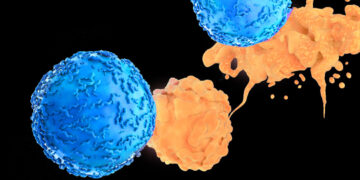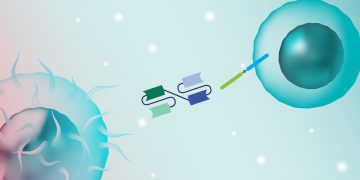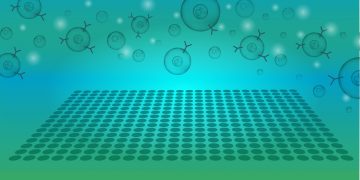
Efficacy of a Novel Treatment for Multiple Myeloma Established by Flow Cytometry
Autologous stem cell transplantation (ASCT) is an effective treatment strategy for multiple myeloma (MM) but isolating enough hematopoietic stem and progenitor cells (HSPCs) for transplantation can be challenging. The selective CXCR4 inhibitor motixafortide has been shown to be a safe and efficacious HSPC mobilization agent in a phase 2 trial when paired with G-CSF. Crees et al. (2023) report the results of the phase 3 trial, in which they used the ZE5 Cell Analyzer to explore motixafortide’s mobilizing effects.

How to Build Bigger Immunophenotyping Panels with StarBright Dyes
With the advancement of technology, flow cytometers are now able to detect a much greater range of fluorescent dyes, facilitating the analysis of more extensive and complex multicolor immunophenotyping assays. But this has also introduced more pitfalls to navigate during the design of these experiments. Find out how StarBright Dyes can help circumvent many of these issues, enabling consistent and reliable results.

Flow Cytometry Empowers CAR T-Cell Therapies
Chimeric antigen receptor (CAR) T cells represent the next generation of therapeutic interventions and are a major advancement in personalized disease treatment. CAR T-cell therapies utilize a patient’s own T cells to recognize and destroy cancer cells or other disease-causing cells. Find out how the ZE5 Cell Analyzer has helped overcome some of the challenges associated with development of these powerful new therapies.

Leading the Way in Our Understanding of COVID-19: Peptide Megapool Assays
Understanding how T cells respond to severe acute respiratory syndrome coronavirus 2 (SARS-CoV-2) is critical in developing long-term therapeutic approaches, as well as helping inform strategies for future pandemics. Learn how one team at the La Jolla Institute for Immunology in San Diego, California, has been using novel T-cell activation assays to understand how our immune system responds to SARS-CoV-2.

The ZE5 Cell Analyzer, a Fast and Flexible Flow Cytometer for High-Throughput Screening
High-throughput screening (HTS) is a critical component of the entire drug discovery process. Flow cytometry is an attractive alternative to imaging and plate reader assays for HTS in drug discovery, due to its increased sensitivity and multiplexing capabilities. The ZE5 Cell Analyzer eliminates pain points that have hindered the full adoption of flow cytometry for drug discovery.

Bispecific Antibodies and Cancer Immunotherapy
Bispecific antibodies (bsAbs) are an important addition to the immuno-oncology toolbox. Designed to recognize two distinct epitopes, bsAbs have enhanced binding, specificity, and efficacy compared to current monovalent antibody therapeutics, making them exciting candidates for more targeted cancer treatments. Learn about bsAbs and how our tools can help scientists with their research on therapeutic candidates.

5 Reasons to Read the Antibody Advice Guide
In the day-to-day pressures of a research environment, it is natural to want to generate important data as quickly as possible. However, there are real benefits in ensuring that the antibody you have picked is the best for your experiment and spending time aliquoting and titrating your antibodies. Bio-Rad recently launched a free Antibody Advice Guide to equip scientists with the knowledge to get the best out of their experiments with antibodies. Read on for five examples of valuable information that you will learn from the guide, helping you generate publication-ready data.

5 High-Throughput Screening Applications Using Flow Cytometry
For many scientists, high-throughput flow cytometry screens are associated with drug or compound libraries, but did you know that you can also apply this technique to study microorganisms, clinical melanoma samples, and even protein trafficking? Read on for five examples of the use of flow cytometry in diverse, high-throughput screening applications.

6 Tips to Secure Funding for Flow Cytometers
We asked core facilities staff and research scientists from the U.S. and Europe for their top tips for securing funding for large instrumentation, such as a cell analyzer or cell sorter. Here are the key questions you should consider while preparing your grant application to increase your chances of a successful outcome.

Advanced Cancer Therapeutics: Increasing Efficacy and Specificity and Reducing Toxicity
Research into human diseases has led to the development of novel monoclonal antibody drugs. These monoclonal antibody therapies have been successful because of their specificity and selectivity. However, ongoing development and successfully launching a new mAb drug require robust and reliable methods to screen for drug targets, demonstrate drug safety and efficacy, and scale up manufacturing to meet the stringent regulatory guidelines required for approval.
